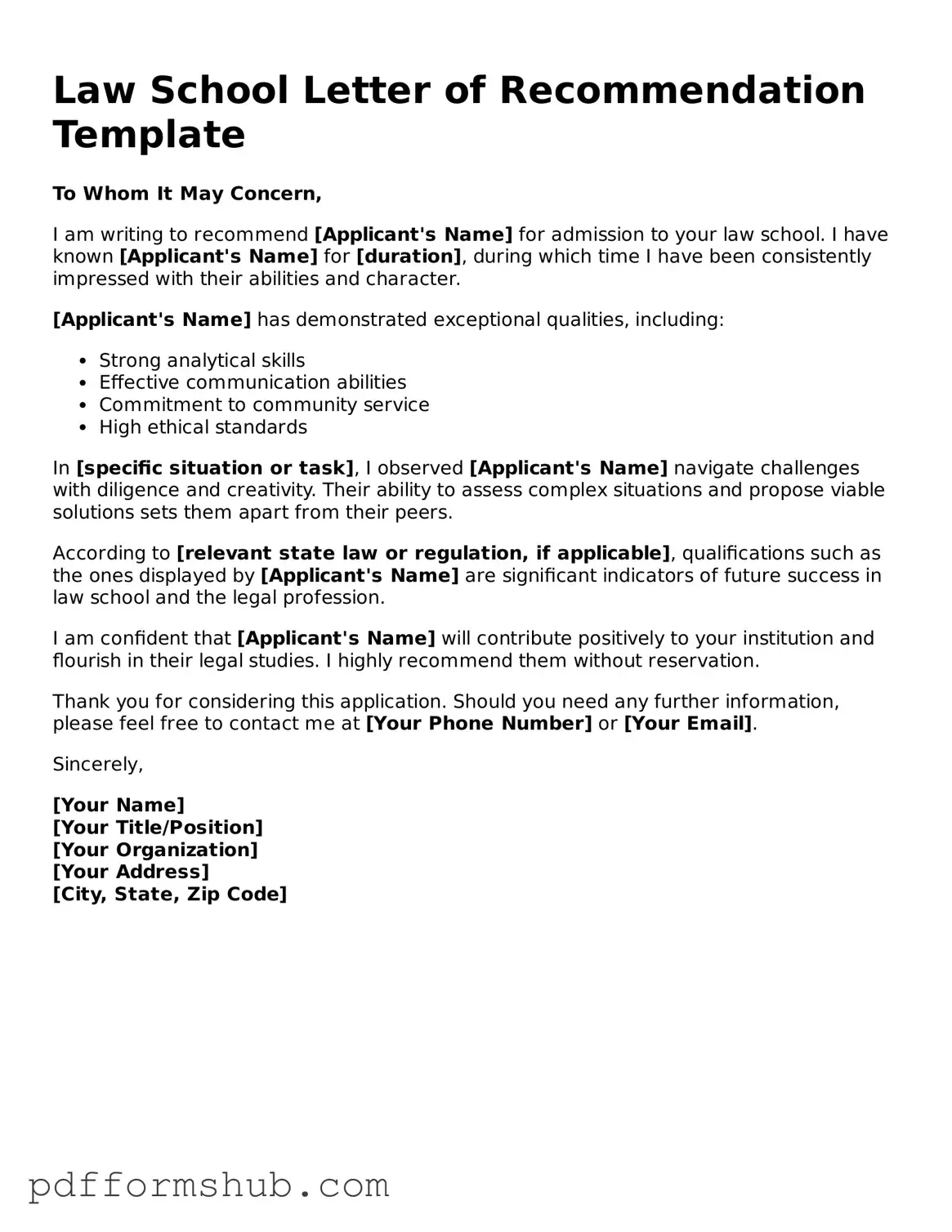Valid Law School Letter of Recommendation Form
The Law School Letter of Recommendation form is a crucial document that allows individuals to provide insights into a candidate's qualifications and character as they apply to law schools. This form serves as a valuable tool for admissions committees, offering a glimpse into the applicant's abilities and potential for success in legal studies. Understanding how to effectively complete this form can enhance a candidate's application and strengthen their chances of acceptance.
Ready to get started? Fill out the form by clicking the button below.
Customize Form

Valid Law School Letter of Recommendation Form
Customize Form

Customize Form
or
Free PDF Form
Short deadline? Complete this form now
Complete Law School Letter of Recommendation online without printing hassles.